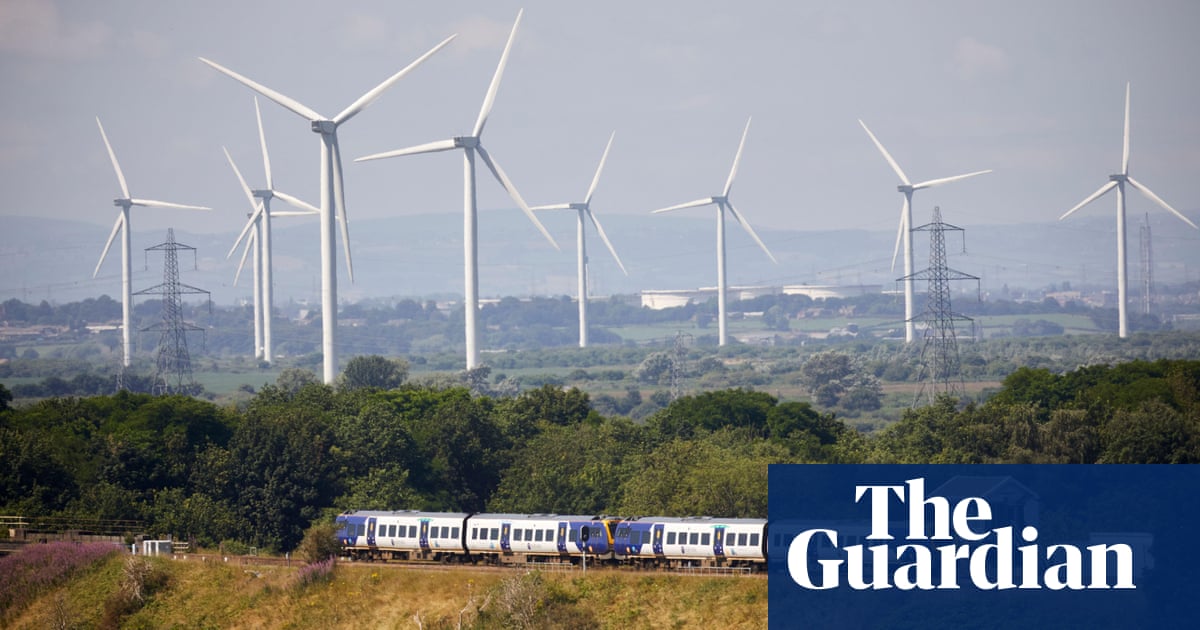
The chancellor has changed the remit of the Bank of England’s interest rate-setting monetary policy committee to include a duty to support the government’s net zero carbon ambition alongside its longstanding responsibility to keep inflation in check.
Rishi Sunak made the change to reflect the importance of environmental sustainability, he said.
Under the green upgrade, the Bank must support the government’s strategy to “level up opportunity in all parts of the UK” and to “transition to an environmentally sustainable and resilient net zero economy”, according to the Treasury.
The surprise extension of the remit formed part of an otherwise modest set of Treasury measures to help spur the UK’s burgeoning green economy including plans to issue a £15bn Green Gilt sovereign bond, a £22bn National Infrastructure Bank based in Leeds, and a string of small-scale development funding pledges.
The chancellor promised a “real commitment to green growth” in his budget, though environmentalists expressed concern about a lack of detail over how that might be achieved.
Analysts said the Bank’s new green mandate means its banking policy decisions would now work in lock-step with the government’s agenda, which together with the National Infrastructure Bank could help channel billions of private capital towards green spending.
Karen Ward, a chief strategist at JP Morgan and a former adviser to Philip Hammond when he was chancellor, said investors “should not underestimate the impact this could have on the already strong momentum behind sustainable investing”.
“This could tilt the preference of the central bank’s asset purchases and involve considerable regulatory change to encourage private capital to do likewise,” she said.
The Treasury also hopes to galvanise the financial might of the City around its £15bn Green Gilt and a new scheme to become a global leader in the burgeoning market for “offsetting” carbon emissions by investing in projects which save or avoid emissions.
Sunak has appointed Dame Clara Furse, a former chief executive of the London Stock Exchange, to set up a working group to develop the new markets.
Sunak also hopes to harness the saving power of retail investors through a “world first” green bond, to be launched by National Savings & Investments, designed to give UK savers the opportunity to buy bonds which help support green projects while boosting their savings.
The cross-party environmental audit committee welcomed the decision to put climate action at the heart of the Bank of England’s work after calling for its remit to be more consistent with the government’s climate ambitions. But it joined the calls of many green investors and campaigners in urging the Treasury to go further.
Jeegar Kakkad of the Tony Blair Institute for Global Change thinktank said the new infrastructure bank would invest less in the UK each year than the £7bn that used to come from the European Investment Bank before Brexit.
“While an infrastructure bank was long overdue, it is baffling why the government has chosen to give it only a fraction of the funding recommended by the National Infrastructure Commission,” said Kakkad.
Sunak devoted a scant two minutes of his budget speech to government plans to reach net zero emissions, in which he promised “green” growth, innovation or jobs seven times. However, there was no mention of measures to accelerate the take up of electric vehicles or the green homes grant, a scheme to subsidise insulation and low-carbon heating with grants of up to £10,000 per household.
Sunak also kept fuel duty frozen for the 11th year in a row, which is likely to raise emissions by 300,000 tonnes this year. The freeze is also estimated to have cost the Treasury at least £50bn in revenue so far. Carbon dioxide from transport, which makes up more than a third of the UK’s emissions, has barely budged in the past decade as gains from people switching to electric vehicles have been more than wiped out by increasing numbers of people driving SUVs.
Green experts said the budget failed to bolster the UK’s green reputation ahead of the presidency of the G7 summit this summer and as host of vital UN climate talks, called Cop26, this November, and showed little sign of the “muscular interventionism” needed to spur a green recovery.
Nick Mabey, the chief executive of the environmental thinktank E3G, said: “Ahead of Cop26, this budget was a missed opportunity by failing to set out an unequivocal direction of travel towards a green zero carbon future. The chancellor has dropped the green recovery ball before the try line.”











